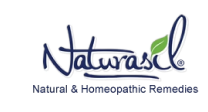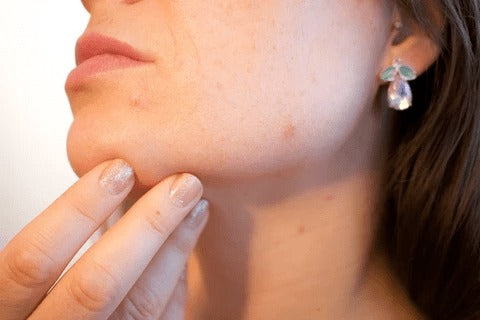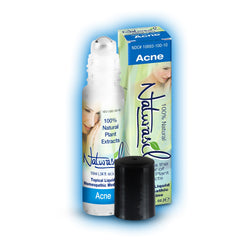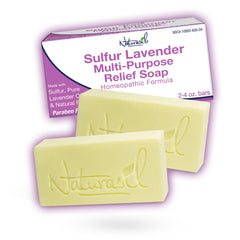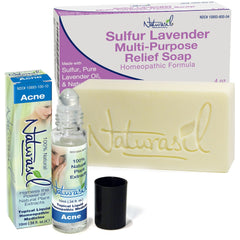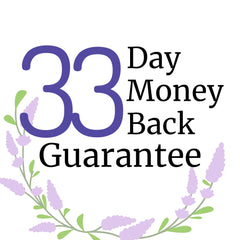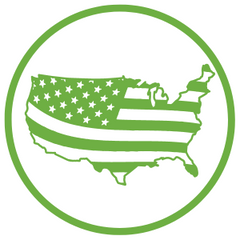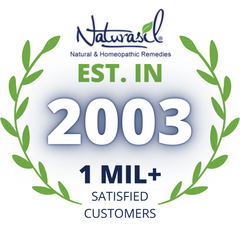Acne can be embarrassing at any age. Even just a small blemish can leave you feeling self-conscious and think that it’s all anyone notices when you see them. If you do suffer from acne, you'll try just about anything to get rid of it. This is why acne treatment is a multi-billion dollar industry. Unfortunately, most treatments on the market can be costly, ineffective, and chock full of harsh chemicals, leaving your skin dotted with dark spots, scars, and dry skin.
What is Acne?
The first thought is pimples. However, a person who has acne can have any of these other types of blemishes:
- Blackheads
- Whiteheads
- Papules
- Pustules (what we call pimples)
- Cysts
- Nodules
What Causes Acne?
Here are some other causes for acne breakouts:
- Pregnancy can also cause acne due to hormonal changes.
- Certain medications can cause acne.
- Certain foods you may be sensitive to or allergic to can cause acne or Rosacea. Refined carbs, such as fructose, sugar, and grains, will also increase inflammation in your body, which may trigger acne.
- Stress is another big trigger. Meditation can help with that. So get your "Ohmmmmm" on.
Acne Treatments, Drugs, and Therapies
There are many over-the-counter acne treatments readily available without a prescription. Unfortunately, many of these treatments don’t work very well. They can dry the skin more, which can make the situation even worse. There are a variety of treatments a doctor can prescribe, which can be costly and leave you with scars and dark spots. Most of these treatments contain harmful acids or steroids and have side effects, one of which can cause even more acne!
Some of the most common prescription treatments include:
Topical Prescription Treatments - Topical treatments may contain a retinoid, prescription-strength benzoyl peroxide, antibiotic, or salicylic acid, which can cause skin side effects such as redness and dryness. You may also be directed to wear sunscreen and limit sun exposure during use.
Oral Medication -
Antibiotics: Some doctors may prescribe oral antibiotics to kill bacteria and reduce inflammation. The problem with antibiotics is that they are generally over-prescribed; over time, your body can eventually build resistance. They also cause their own host of unpleasant side effects, such a digestive and stomach discomfort.
Combined oral contraceptives: Birth control pills and other hormone-related prescriptions may be prescribed to control acne producing hormones. These drugs' most common side effects are headache, breast tenderness, nausea, weight gain, and breakthrough bleeding. A serious potential complication is a slightly increased risk of blood clots.
Isotretinoin: Oral isotretinoin is a very effective treatment but comes with dangerous and harmful side effects and must be monitored closely by a doctor. Side effects include ulcerative colitis, an increased risk of depression and suicide, and severe birth defects. Because of the serious risk of side effects with Isotretinoin, women of reproductive age must participate in a Food and Drug Administration-approved monitoring program to receive a prescription.
Procedures and Therapies: A doctor may recommend procedures and therapies such as light therapy, chemical peels, extraction and drainage of blackheads, whiteheads, and acne cysts, or steroid injections. The side effects from some of these procedures include severe redness, blistering with chemical peels, skin discoloration, and scarring.
As much as you want to eliminate embarrassing and sometimes painful acne, some risks truly outweigh the benefits. They can also be extremely costly and insurance carriers may not cover treatments they deem cosmetic.
All-natural, safe, and effective acne treatment
Fortunately, you can relieve your acne with an all-natural, safe, and effective homeopathic treatment with Naturasil Acne Treatments. Unlike most common treatments, ours is a homeopathic remedy that promotes healthy, clear skin and assists in relieving the symptoms of acne, common acne, cystic acne, whiteheads, and blackheads.
It works to assist in the relief of the symptoms of acne without harsh chemicals or side effects found in many traditional methods by using Phosphoric acid (a more gentle acid used to balance out the pH in your skin) and natural plant extracts.
